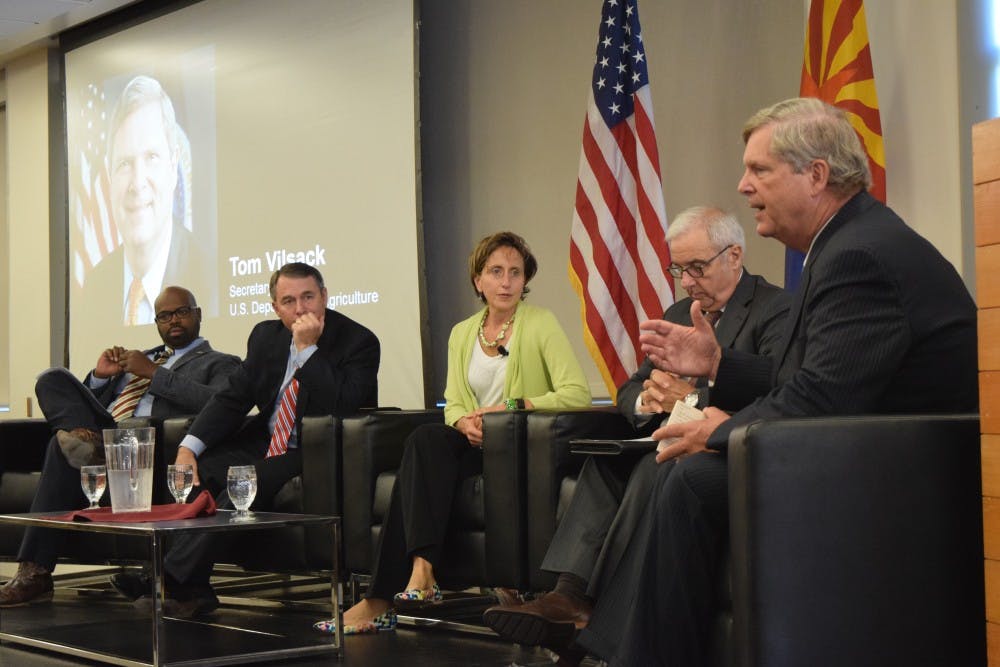As climate change and a shifting economy impact certain parts of the U.S., farmers often have the biggest stake in the game — they are responsible for sustainably producing the country's food, but are also at risk if the market crashes.
On Thursday Sept. 15, several top experts in climate change, conservation and food production met as part of a Fall Forum put on by the Sustainability school in ASU’s Memorial Union to discuss these issues which are especially pertinent to the University and the state of Arizona as a whole.
“The system is interconnected, which makes thinking about adaptation to climate change really challenging," Hallie Eakin Ph.D, a Senior Scientist at the Julie Ann Wrigley Global Institute of Sustainability, said. This is essential not just at a political scale, but also at the University level as well, she added.
She said different schools must come together and work in tandem to find a solution to these larger problems, despite their differing backgrounds.
“Being able to sit down and say 'OK, I’m not going to pass judgement' is important,” Eakin said. “And then asking how we can find a mutually beneficial solution.”
In the forum, Tom Vilsack, the U.S. secretary of agriculture discussed the importance of state responsibility in the issue.
“We are going to hold ourselves accountable," Vilsack said. “Chronic and persistent drought, stronger and more intensive storms — these are real challenges due to the changing climate.”
Though the future may seem grim, Vilsack’s attitude and message were optimistic. He outlined dozens of strategies that the government and education system is enacting to fight these problems.
The USDA’s Farm Bill, for example, allows the department to monitor hundreds of farms across the country and track the production of a variety of different crops. Using this information, the government and farmers can alter their practices to become more efficient and environmentally friendly.
The bill also created competition to show the most ecological improvement by dispersing funds based on how efficient individual watersheds became. This has already led to the funding of 198 projects and almost $6 billion dollars in dispersed funds in breadbaskets across the U.S., Vilsack said.
Another key to solving this issue is collaboration, he said.
Secretary Vilsack brought together some of the leading voices in the agricultural community, from Arizona and Washington DC, to discuss the issue. The conversation between major agricultural producers and the U.S. government is essential if a viable solution is to be found, he said.
This emphasis on collaboration in regards to agriculture at the university level was also stressed by the Director of the Arizona Department of Agriculture, Mark Killian.
The amount of ranchers and farmers in the field is decreasing, and there doesn’t seem to be the necessary forces to replenish them, he said.
“The average age of a farmer or rancher is 58," Killian said. “There is a real heritage aspect to this. We want students to not feel like they have to come to the city in order to be innovative and unique.”
Reach the reporter at cdemert@asu.edu or follow him on Twitter @dolewayne
Like The State Press on Facebook and follow @statepress on Twitter.




